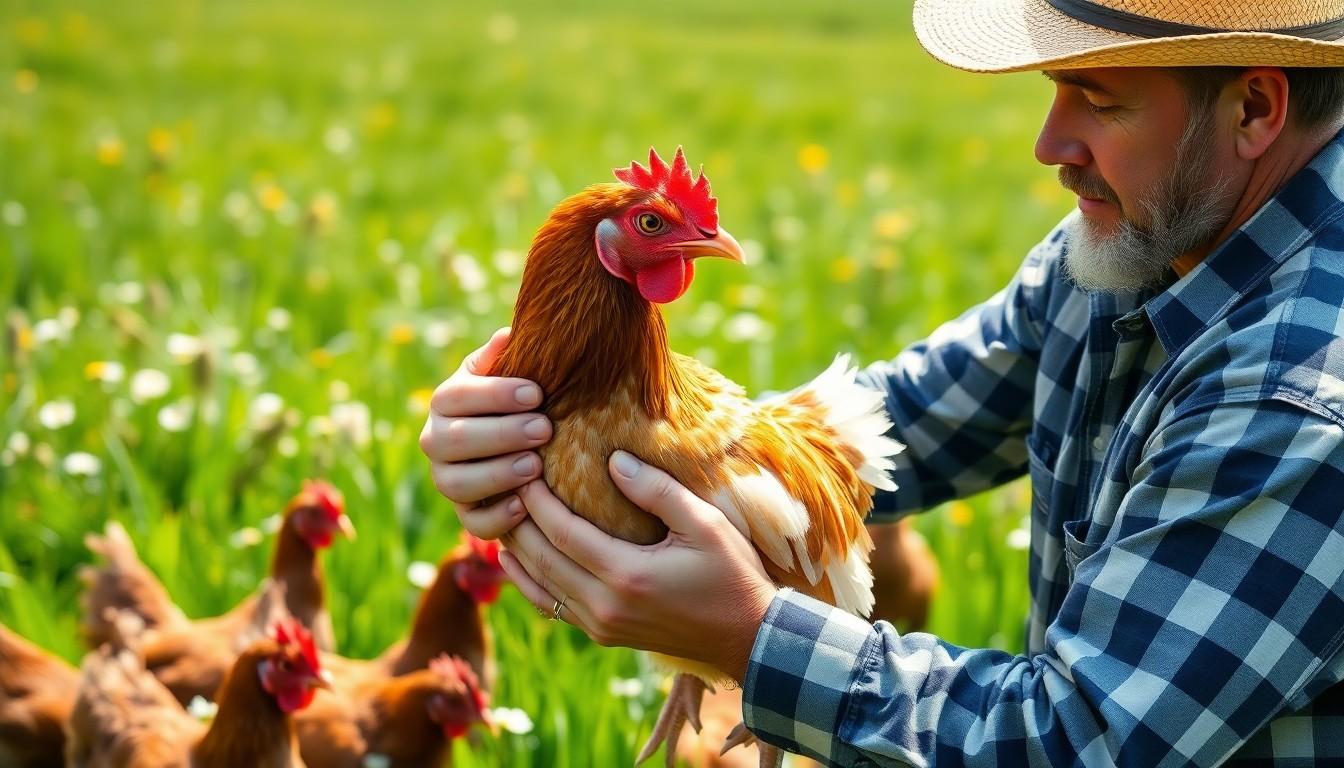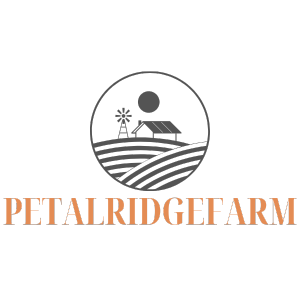In a world where chicken nuggets reign supreme, organic chicken farming emerges as the hero we didn’t know we needed. Forget the factory farms and their questionable practices; organic chicken farming invites consumers to savor the taste of freedom—both for the chickens and their dinner plates. Imagine chickens strutting around like they own the place, pecking at organic grains and basking in the sun like they’re on a permanent vacation.
But it’s not just about happy clucking and cozy coops. Organic chicken farming offers a healthier alternative for both consumers and the environment. With rising demand for sustainable food sources, this method is gaining momentum faster than a chicken on a hot grill. So, let’s dive into the world of organic chicken farming and discover how it’s not just a trend but a tasty revolution.
Organic Chicken Farming
Organic chicken farming focuses on raising chickens without synthetic pesticides, herbicides, or antibiotics. This method prioritizes animal welfare, allowing chickens to roam freely in outdoor pastures. Farmers ensure a diet of organic feed, which contributes to healthier birds and higher-quality meat.
Research indicates that organic chicken tends to have a lower risk of pathogens, providing a safer choice for consumers. Farmers emphasize sustainable practices, including crop rotation and natural fertilizers, benefiting both soil health and biodiversity.
Additionally, organic chicken farming reduces environmental impact through minimal use of harmful chemicals. This practice supports ecosystems by fostering healthier habitats for wildlife and beneficial insects.
Consumers increasingly seek organic options, driving demand and encouraging more farmers to transition from conventional methods. Many organic farmers participate in certification programs, ensuring compliance with strict organic standards.
Health-conscious consumers appreciate the nutritional value of organic chicken, often citing higher omega-3 fatty acids and lower saturated fat levels compared to conventionally raised chickens. Increased transparency in the supply chain also boosts consumer trust in organic products.
Local markets and community-supported agriculture initiatives offer opportunities for direct sales of organic chicken, allowing farmers to maintain better profit margins. Changing consumer preferences significantly influence food production trends, reinforcing the growth of organic chicken farming as a viable alternative in the poultry industry.
Benefits of Organic Chicken Farming

Organic chicken farming offers numerous advantages that contribute to healthier livestock and a positive environmental impact.
Healthier Livestock
Chickens raised organically show improved health due to the absence of synthetic pesticides, herbicides, and antibiotics. Organic farming practices promote natural behaviors, allowing chickens to roam outdoors. This freedom results in physically active birds that experience lower stress levels. Studies indicate organic chickens also have a reduced risk of pathogens, leading to safer meat for consumers. Providing organic feed further enhances their diets, contributing to higher nutritional value, including more omega-3 fatty acids. Farmers who prioritize chicken welfare report fewer incidences of disease, which translates into healthier livestock overall.
Environmental Impact
Organic chicken farming plays a crucial role in promoting environmental sustainability. By utilizing natural fertilizers and rotational grazing, farmers enhance soil health and biodiversity. Without harmful chemicals, organic farms reduce water contamination risk and promote cleaner ecosystems. Additionally, sustainable practices help maintain local wildlife habitats, supporting diverse species. The emphasis on minimizing synthetic inputs means lower carbon footprints and reduced greenhouse gas emissions. As more farmers adopt organic methods, the cumulative positive impact on the environment becomes significant, fostering a healthier planet for future generations.
Challenges in Organic Chicken Farming
Organic chicken farming faces several challenges that can affect both production and profitability. Addressing these issues requires careful management practices and a solid understanding of organic standards.
Feed and Nutrition
Acquiring quality organic feed poses a significant challenge for organic chicken farmers. The feed must meet specific organic certification requirements, which can limit availability and increase costs. Sourcing grains and supplements without synthetic additives encourages dependency on local suppliers. Maintaining a balanced diet is crucial for optimal poultry health, nutrient absorption, and growth. Most organic diets include grains, seeds, and organic protein sources, like insects or legumes, to support development. Evaluating nutrient content in feed becomes essential to ensure chickens receive necessary vitamins and minerals. Farmers also explore forage availability and seasonal variations to supplement diets naturally, promoting healthier birds and enhancing meat quality.
Disease Management
Managing disease in organic chicken farming requires a proactive approach due to the restrictions on chemical treatments. Monitoring flock health through regular checks reduces potential outbreaks. Implementing biosecurity measures, such as controlling outside access and sanitizing equipment, helps prevent disease introduction. Relying on natural remedies, including herbal supplements or probiotics, supports immune function without pharmaceuticals. Vaccination remains an option but is subject to specific organic guidelines. Crop rotations and diverse pasture use further contribute to reducing pathogen prevalence in the environment. Ensuring optimal living conditions, like clean and spacious housing, significantly lowers stress and enhances overall health, which contributes to lower disease incidence among flocks.
Best Practices for Organic Chicken Farming
Organic chicken farming relies on sustainable practices and adherence to certification standards, ensuring the health of livestock and the environment.
Sustainable Farming Techniques
Sustainable practices play a critical role in organic chicken farming. Crop rotation enhances soil fertility and biodiversity. Implementing integrated pest management reduces reliance on synthetic chemicals. Providing outdoor access promotes natural behaviors in chickens, which lowers stress and disease potential. Utilizing compost as a natural fertilizer improves soil health while minimizing waste. Farmers prioritize rotational grazing systems, which promote pasture growth and provide fresh foraging options for the flock. These techniques contribute to a healthier farming ecosystem and support the overall goals of organic practices.
Certification Requirements
Compliance with certification requirements is essential for organic chicken farming. USDA regulations dictate that farmers must follow strict guidelines, including the organic composition of feed. Animals must have continuous access to the outdoors and be raised without synthetic pesticides and antibiotics. Organic feed ingredients must be certified and sourced from approved suppliers. Farmers undergo thorough inspections to verify adherence to these standards, which cover every aspect of poultry care and environmental management. Documentation is vital, as detailed records of practices demonstrate compliance during audits. Meeting these certification requirements builds consumer trust and affirms the commitment to organic principles.
A Healthier Farming Ecosystem
Organic chicken farming represents a transformative shift in agriculture that prioritizes animal welfare and environmental sustainability. By embracing natural practices and avoiding harmful chemicals, farmers not only produce healthier chickens but also contribute to a more sustainable food system. As consumer awareness grows, the demand for organic chicken continues to rise, encouraging more farmers to adopt these practices.
This movement not only benefits consumers with safer and more nutritious options but also fosters a deeper connection between local communities and their food sources. With ongoing commitment to organic principles and sustainable methods, the future of organic chicken farming looks promising, paving the way for a healthier planet and population.

